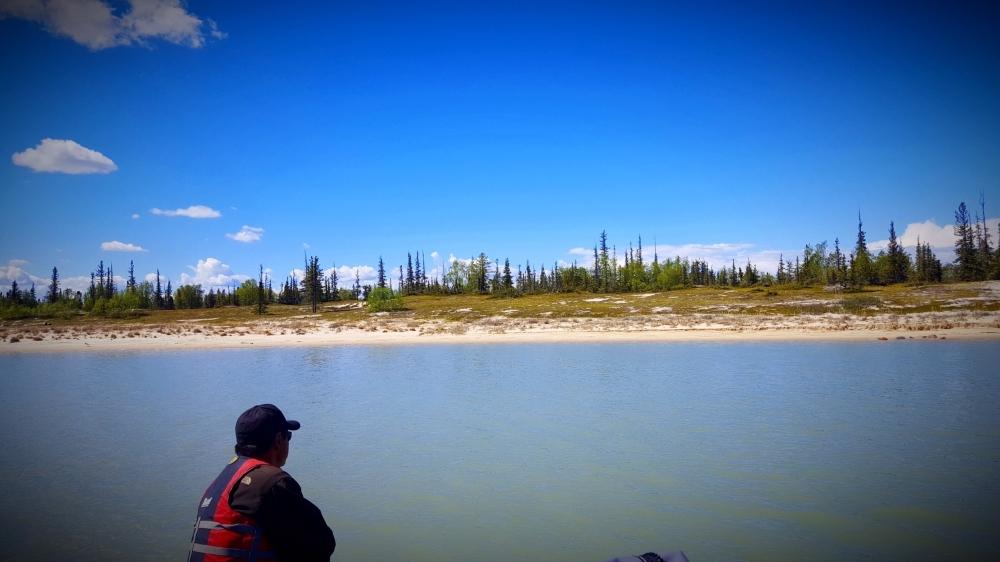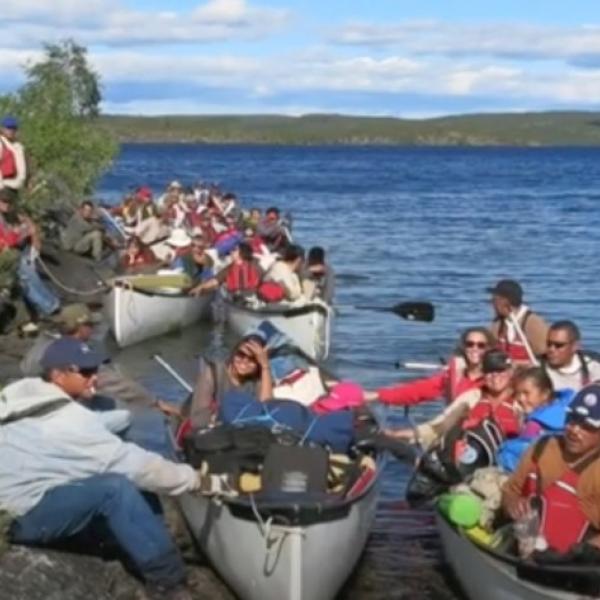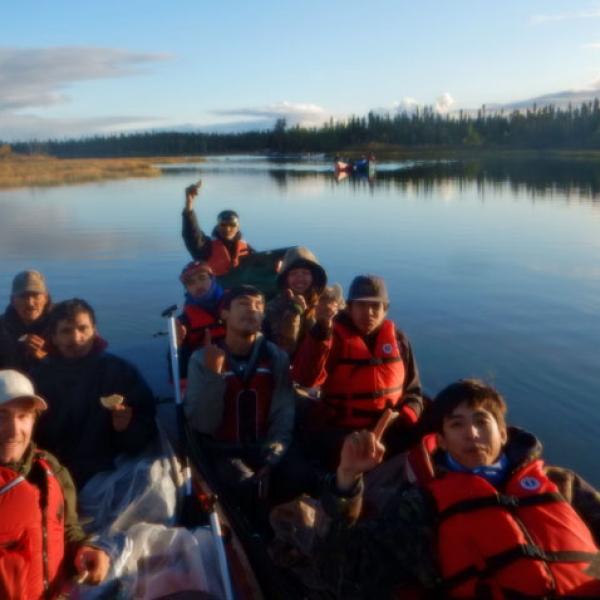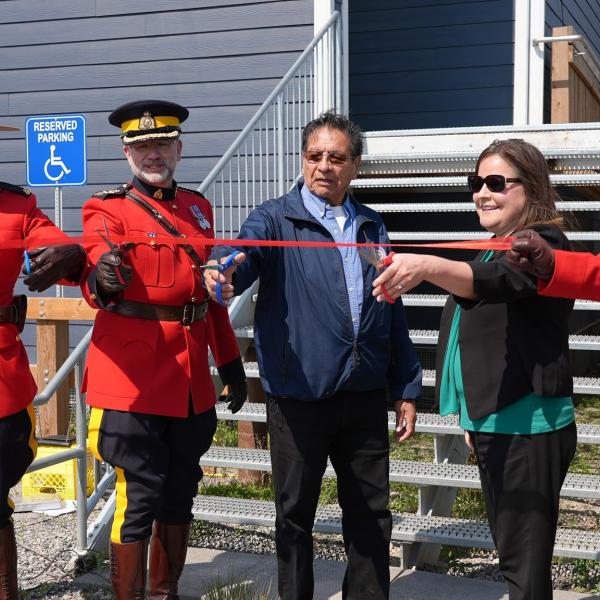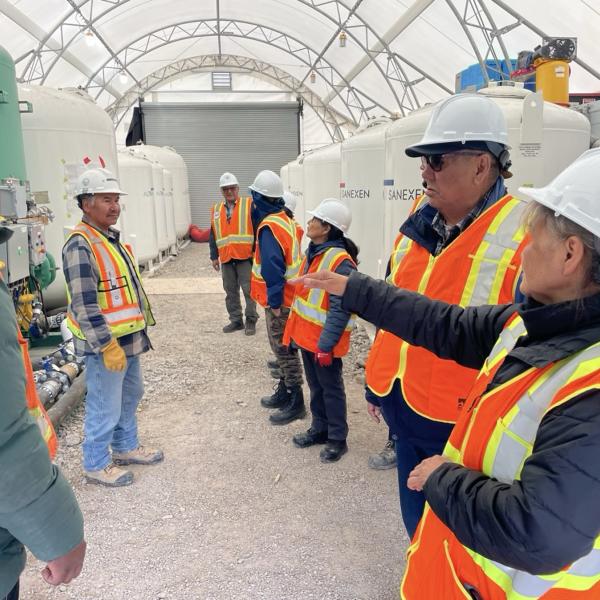of colonialism in a new way.
PLACE NAMES on our Tłı̨chǫ landscape are the journal of our relationship with the land. Our journal was first embedded in the landscape by our ancestors and it serves as a foundation for our language. The place names tell of who we are and our relationship with the animals in the environment that we share. Through the ages our people have added their signincant experiences and we consider our place names to be a continuing testament of our people.
One company recently changed the name of its silica sand exploration project at Whitebeach Point, 50 km west of Yellowknife on Great Slave Lake, from the imposed English name of Chedabucto to a Tłı̨chǫ land feature name, Whagwe. This is a continuation of the colonial practice of imposing names without regard to what was there before. This word, Whagwe, describes the originality of a feature and the pristine quality of that area that contributes to our way of life.
Let's get real: this company appropriated this Tłı̨chǫ word to name its project, despite how inappropriate it is, and even in the face of objections. It is ironic that an exploration company would appropriate a word to describe its project, given the word describes a feature and implies its pristine quality. The activity itself would destroy its newly acquired namesake, Whagwe.
When a company continues the old practice of naming things in their way, using our language, it twists the knife of colonialism in a new way.
Original Aboriginal place names have been overshadowed by the experiences of the early explorers, the early trade, and government sanctioned early exploration. These are the names that have encroached into official acceptance in publications. There is no need to continue these old practices in this day and age.
When we see a name appropriated from our language, we see the consistent colonial pattern of companies using our inventory of words to attract investment and give the impression they have our support. In so doing, they destroy the original value of the place name and replace it with an activity that destroys the original fearure.
We developed a dictionary because people were anxious to see our relationship and way of life through the lens of our own language. The land is our repository, and its use is meant to maintain our identity. The Tłı̨chǫ dictionary was initiated so that new generations would have access to that original information in a new form, keeping in the spirit of Strong Like Two People. It is a source that is growing and continually expanding over time. By using it properly and with respect, we begin to collectively understand our history.
The Tłı̨chǫ are connecting to the area of land at Whitebeach Point, just to the north of the silica sand claims that are called the Chedabucto Project. For three weeks in July, people camped there, spoke the language as they shared the knowledge of the place names and enjoyed the area.
If there is going to be any kind of activity in that area, it requires a lot of discussion and collaboration with the original land users, rather than the approach taken so far, which is stepping on our language, culture, and way of life. In the absence of any understanding, maybe the sand is best left as it is -in the ground.
Originally published in the Edge YK October/November 2017 Issue on page 9. Written by Guest Edgetorial, John B. Zoe is a Tłı̨chǫ historian and storyteller.
